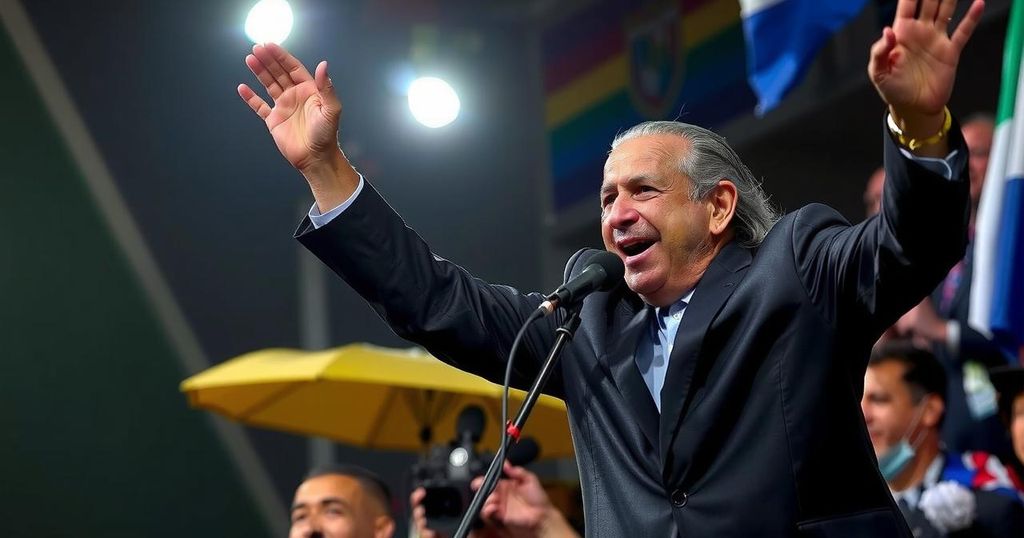Yamandú Orsi of the Frente Amplio coalition has won the Uruguay presidential election, ending five years of conservative rule. With 1,123,420 votes versus Álvaro Delgado’s 1,042,001, Orsi emphasized national dialogue in his address. Despite the political shift, analysts expect limited economic changes, with a focus on addressing crime and economic recovery following recent challenges.
Yamandú Orsi, the left-wing candidate from the Frente Amplio (Broad Front) alliance, has been elected as the President of Uruguay, marking a significant shift in the nation’s political landscape after five years of conservative governance. Official results revealed that Orsi received 1,123,420 votes against Álvaro Delgado’s 1,042,001, leading to jubilant celebrations in Montevideo. In his victory address, Orsi emphasized his commitment to forge national dialogue and unity in addressing pressing issues.
Analysts predict that despite the change in leadership, Uruguay’s economic policies may not experience drastic alterations, as Orsi assures the public of a moderate approach to reforms. Both candidates, however, recognized the urgency of combating drug-related crime and stimulating economic recovery following setbacks caused by the Covid-19 pandemic and a severe drought. With the electoral court reporting that 94.4% of ballots have been counted, Orsi’s election signifies hope for a more progressive agenda that is reminiscent of Uruguay’s previous leftist governance.
Yamandú Orsi, previously an understudy to former President José Mujica, captured 43.9% of the votes in the initial round of the election held on October 27, outperforming Delgado, who garnered 26.7%. Notably, the electoral paradigm reflects Uruguay’s complex socio-political dynamics, where voting is compulsory. Orsi’s leadership will likely maintain a majority in the Senate, although the Frente Amplio remains a minority in the Chamber of Representatives.
This electoral outcome comes amid rising public concerns regarding safety, echoing sentiments from five years ago when crime and drug trafficking prompted a demand for change. Nevertheless, during the previous leftist regime, Uruguay advanced significantly, enacting laws that legalized abortion and same-sex marriage, along with pioneering legal recreational cannabis use in Latin America. The electoral significance of Orsi’s win resounds within a historical context marked by progressive reforms balanced by concerns over crime and economic stability.
The election of Yamandú Orsi represents a pivotal moment in Uruguay’s political history, transitioning back to leftist governance after a five-year period characterized by center-right rule. Historically, the Frente Amplio coalition has been instrumental in implementing progressive reforms, including the legalization of same-sex marriage and cannabis. The political landscape has oscillated between left and right, contingent on public sentiment surrounding crime, economic stability, and social policies. As social issues continue to polarize public opinion, this election offers insights into the evolving priorities of the Uruguayan electorate.
In summary, Yamandú Orsi’s election as President marks a return to leftist governance in Uruguay, highlighting the electorate’s desire for change after five years of conservative leadership. While addressing key issues of crime and economic recovery, Orsi’s moderate approach suggests continuity rather than upheaval in policy direction. The election reflects broader societal concerns and historical patterns that will influence Uruguay’s future. As Orsi embarks on his presidency, the legacy of previous administrations may shape the political discourse and the implementation of policies aimed at fostering national dialogue and cooperation.
Original Source: www.lemonde.fr






